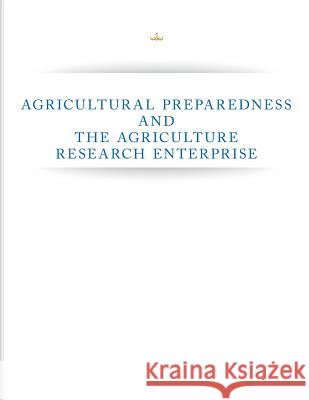Agricultural Preparedness and The Agriculture Research Enterprise » książka
Agricultural Preparedness and The Agriculture Research Enterprise
ISBN-13: 9781500922368 / Angielski / Miękka / 2014 / 56 str.
As we look across the 21st century, we see that agriculture faces a series of new challenges that will require a renewed commitment to innovation and advanced technology development. Private industry will play an important role in the research required to meet these challenges, just as it does today in areas directly related to product development. But much of the necessary research is unlikely to result in new products in a time horizon short enough to incent the private sector to shoulder the entire research burden. Moreover, many of these challenges are clearly in the public domain, as they focus on critical public goods, such as long-term water security; integrated pest-management strategies; or the development of new varieties of livestock, cereal, vegetable, and cover crops that commercial enterprises may not have an interest in. In many cases, important benefits of agricultural research cannot be monetized, making them an unlikely focus for the private sector. These challenges require a public commitment to re-imagining agricultural research in this country. The United States requires an agriculture system that (1) meets its population's needs in long-term balance with its natural resource base and (2) fosters a culture of innovation and excellence to address some of the greatest threats to its long-term prosperity and domestic and international security. In this report we explore these emerging challenges to agriculture and examine the roles that public and private investments in agricultural research can contribute to the sustainability of agriculture over the next century. We also examine the structure of the existing Federally supported agricultural research enterprise and discuss possible ways to reshape public investment in agricultural research to best face the challenges ahead.
Zawartość książki może nie spełniać oczekiwań – reklamacje nie obejmują treści, która mogła nie być redakcyjnie ani merytorycznie opracowana.











